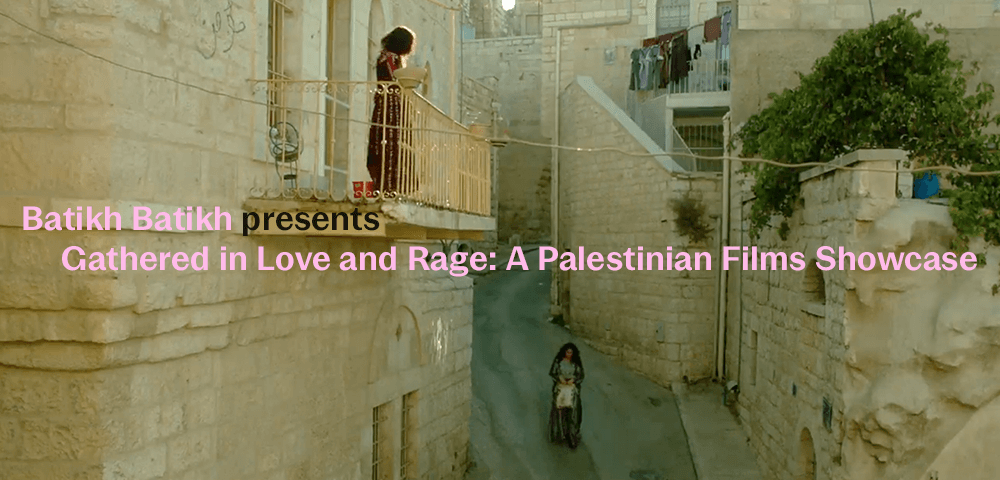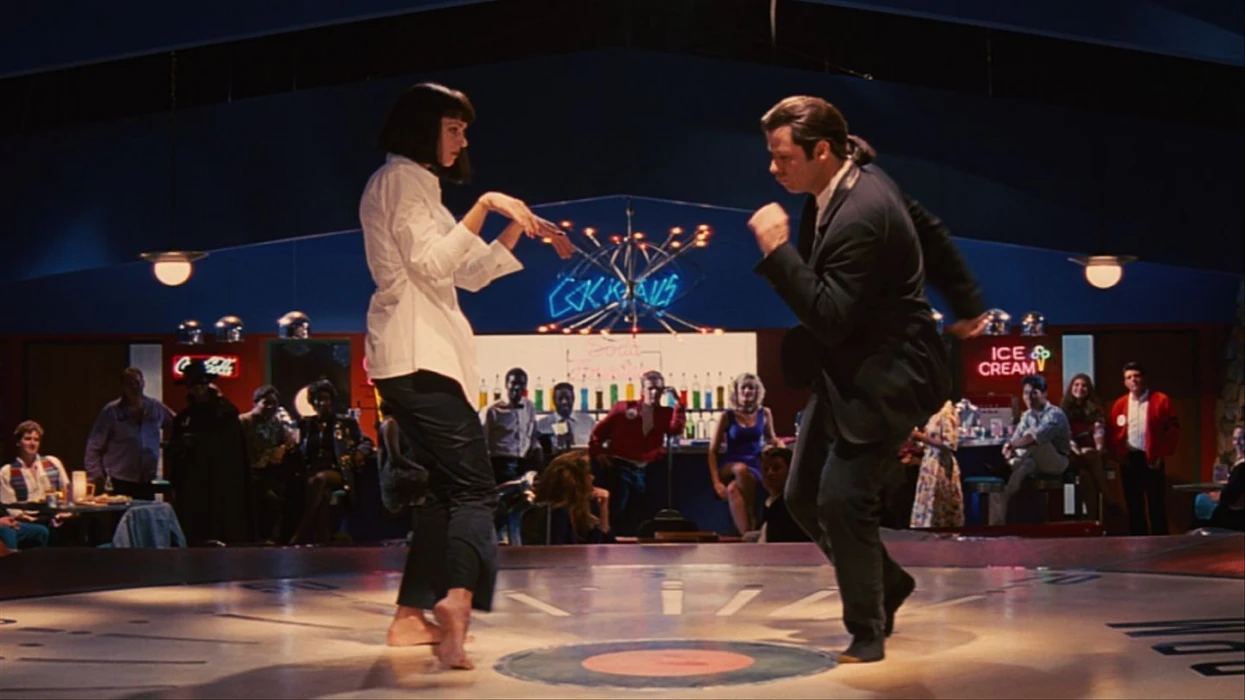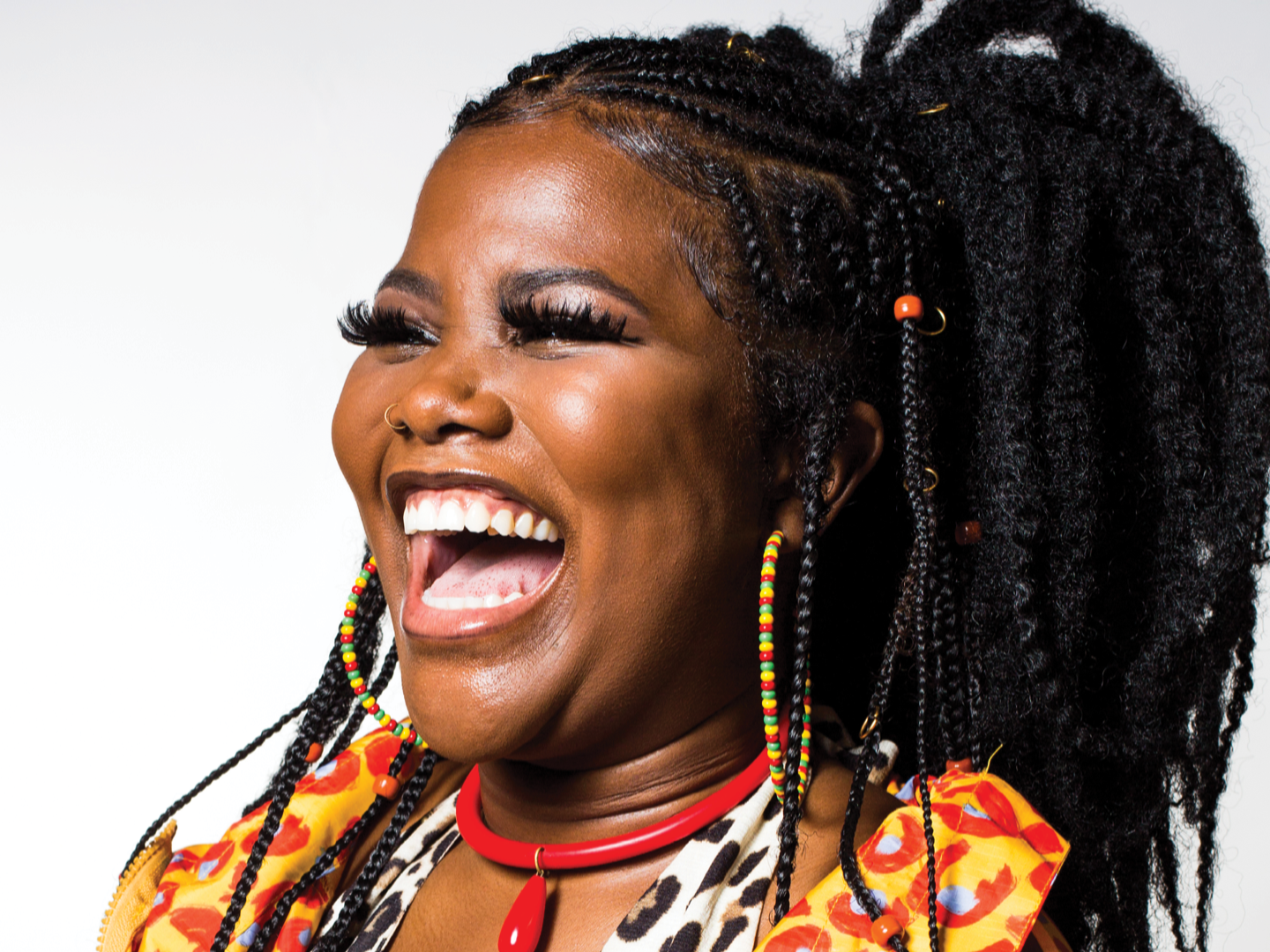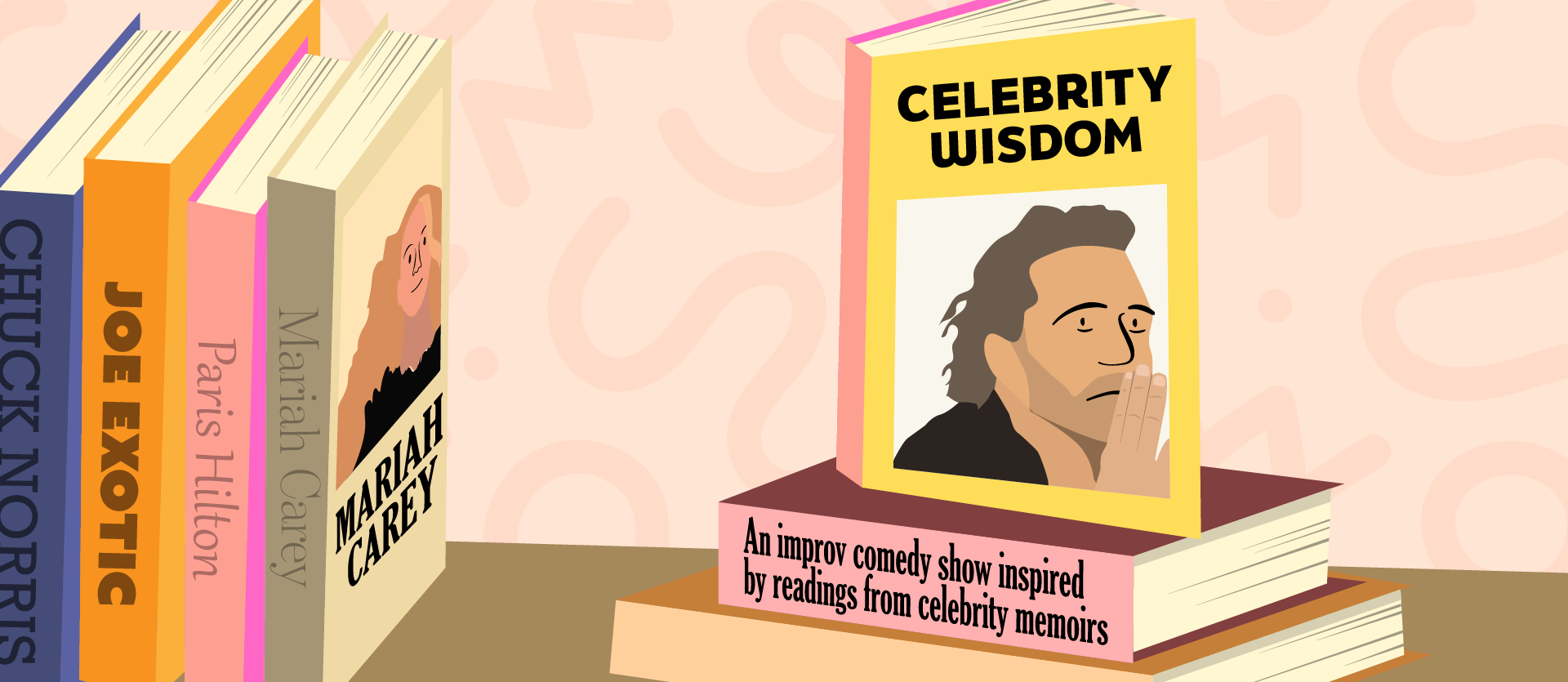Referencing Philadelphia-based human rights attorney, Noura Erakat’s speech on November 3rd, 2023, during the protest in solidarity with Palestine, the title encapsulates the project’s concept and curatorial theme. Gathered is a film program, originally showing at three different Philadelphia venues (Asian Arts Initiative, Vox Populi Gallery, and Making Worlds Bookstore) featuring short films by contemporary independent women and LGBTQ+ Palestinian artists with topics exploring orientalism in the media, love stories, experimental films and queer narratives. With films oscillating between love and rage, the event is meant to create a cathartic grieving space for the South-West Asian North African (SWANA) and Palestinian community, as it faces constant grief and dehumanization, to remind us of not only the justification of our collective rage but to stand in awe of all that Palestinians are teaching us daily about love and community.
5pm Art Making with Jess Lin | Marquee Lounge
7pm Film Showcase (approx. 104 min)
Creative Alliance’s film program is sponsored in part by the Maryland Film Office.
BATIKH BATIKH
Batikh Batikh (BB) is a pop-up cinema and gallery that rents spaces to bring SWANA cinema to Philadelphia and exhibit solo exhibitions of local emerging SWANA women and queer artists. SWANA is a term used to replace the colonial term “the Middle East,” and more clearly recognizes the specific region and its diverse communities. BB was started in November of 2022 by filmmaker and curator Sarah Trad in a response to an alarming lack of SWANA programming both locally and internationally as well as censorship over pro-Palestinian voices. BB is run by SWANA women and queer artist volunteers and is based on a decolonial and anti-capitalist art model—all art is free to the public and featured artists are paid for their work. Proceeds accumulated during BB programming go directly back to artists or mutual aid requests. Batikh Batikh is named after the Arabic word for watermelon as a way to designate its programming as a safe and anti-Zionist space for its community. Please note Batikh Batikh focuses its resources on supporting SWANA artists who identify as LGBTQ+ and/or women. We do not accept submissions with misogynist, homophobic, transphobic, zionist, nationalist, or racist content.
Sarah Trad سارة طراد
Founder/Director/Curator
Sarah Trad (she/her) is a Lebanese-American filmmaker and curator based in Philadelphia. Working in fibers, video, and computer art, she focuses on themes such as Arab American history, Arab representation, queerness, mental health, memory, and future alternate realities. She is currently the Co-Director of Programming for the MENA Film Festival in Vancouver, as well as a previous Juror for the Philadelphia Asian American Film Festival and a Community Advisory Board member for the Asian Arts Initiative. Sarah’s work has been screened at the Gimli Film Festival, Toronto Arab Film Festival, Antimatter Media Art Festival, Rendezvous With Madness Festival, Everson Museum of Art, and Currents New Media.
THE FILMS
Content Warning: This film program contains explicit visual and sound depictions of war and death, racist language/slurs, and fast-paced video with potential light and strobe effects. Viewer discretion is advised.
Our songs were ready for all wars to come, 2021, dir. by Noor Abed, 21 min
The film explores the critical stance of ‘folklore’ as a source of knowledge and its possible connection to alternative social and representational models in Palestine. Images of women performing draw connections between latent stories of water wells and communal rituals associated with disappearance, mourning and death. The only narration in the film is a song, which is sung by Palestinian singer Maya Khaldi. Its lyrics are a collage of different folk tales.
Teta, Opi and Me, 2018, dir. by Tara Hakim, 25 min
Filmed entirely on an iPhone, Teta, Opi & Me is a poetic, meditative, multilingual, and feeling-driven short film, documenting the intricacies of the artist’s playful process in capturing her grandparents’ enduring romance through social, political, and racial adversity. He comes from Bethlehem and she comes from Vienna. Incorporating poetic filmic scenarios, vérité scenes, interviews, and home movies, the work is an intergenerational dialogue that explores themes of family, love, and the intermingling of cultures.
The Cup Reader (2012) / Suha Araj / 12 min
Warde, shamed as a young girl yet renowned in Palestine for her mystical seeing and matchmaking, lives with her sister Jaleleh and reads the fortunes of her clients. Each woman has made or will make a choice between love and marriage, not having had the luxury of both.
Planet of the Arabs, 2003, dir. by Jackie Reem Salloum, 9min
Planet of the Arabs is a experimental short on Hollywood’s negative depiction of Arabs and Muslims through the decades. Inspired by Dr. Jack Shaheen’s book “Reel Bad Arabs”, Planet was an official selection at the Sundance Film Festival, won the “Best Editing” award at the Cinematexas Film Festival, continues to screen at art exhibits and used in classrooms as an educational tool on stereotypes in the media.
Eitr, 2022, dir. by Fateema Al-Hamaydeh Miller, 14min 40 sec
Grinding away at the inherited family business, Mohamed works tirelessly making sales of knock-off perfume, while living as a knock-off version of his true self. His doting mother Marwa brings him lunch everyday and sets up chay dates with potential romantic interests (and their families) what seems like every night. Inside of this monotony Mohamed is lying to himself about his sexuality and leaning into the mask of masculinity in order to maintain the expectations of those around him, but in reality the biggest expectations of how he should be are set by himself. We follow Mohamed on a day where the monotony comes to a screeching halt, when an unexpected charming customer enters his shop. Mohamed shares a connection with this beautiful stranger who lives in self-acceptance and who truly sees him underneath the many layers of Polo Sport adjacent cologne. In Eitr, Mohamed’s fear of his true desires will be tested as he is caught off guard by the power of being seen, but can this connection break him out of his performative shell, even for a lingering moment?
Your father was born 100 years old and so was the Nakba, 2017, dir. by Razan AlSalah, 6min 44 sec min
Oum Ameen, a Palestinian grandmother, returns to her hometown Haifa through Google Maps Streetview, today, the only way she can see Palestine.
Borekas, 2020, dir. by Saleh Saadi, 15 min
A father gives his son a ride to the airport. The car stops working on the way.





